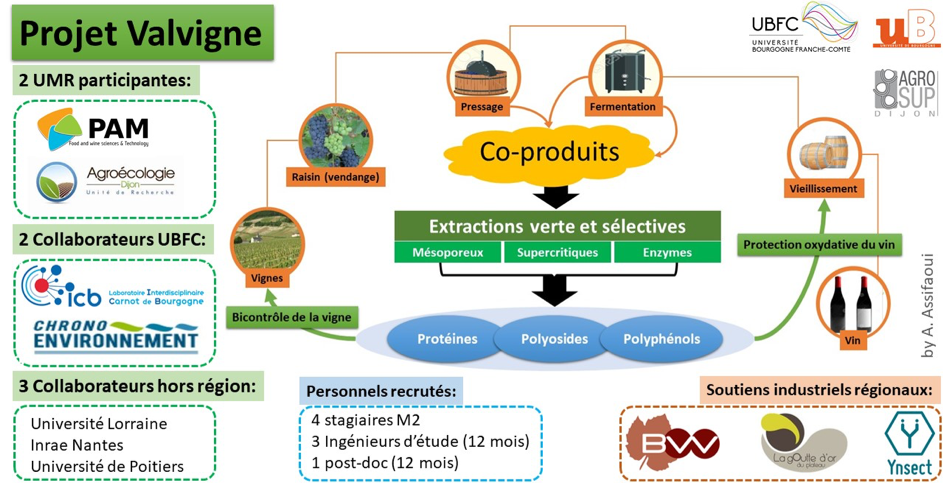Winegrowing by-products, long considered as waste to be treated, have now been identified as by-products to be recovered. They represent an irreducible proportion of biomass (1 million tonnes of grape marc and 14 million hectolitres of wine lees nationally according to the IFV) that can be recovered from an environmental, agronomic and economic point of view. The challenge is to implement a circular economy that reduces the environmental impact of the industry by recycling its by-products, which become raw materials for other industries (cosmetics, food, energy, agriculture, etc.), and to take full advantage of the exceptional potential of winegrowing, both in the region and nationally.
Currently, the scope for exploiting the co-products generated by wine-making is limited to distillation, composting and methanisation. The VALVIGNE project aims to explore other alternatives for creating high added-value co-products. Some of the compounds found in wine co-products (pectins, peptides, polyphenols) are currently unexploited, and could in future be reintroduced during the various stages of wine production, with a number of applications in oenology (reducing sulphites by using the natural antioxidants found in grape marc) and viticulture (phytostimulants, biocontrol). To achieve this objective, VALVIGNE project proposes to implement innovative extraction processes that are environmentally friendly (low ecological footprint, use of green chemistry, i.e. eliminating substances that are harmful to the environment) and selective for each type of compound to be isolated.
Another original feature of the VALVIGNE project is its circular economy approach, which has been implemented mainly in the wine industry but will also be transferred to other industries in the Burgundy-Franche-Comté region (hemp oil and insect meal). The experimental methods will initially be applied to wine co-products, followed by hemp oilcake and insect meal, with a view to studying and optimising the extraction stages for these fractions. The project will be carried out in partnership with the regional wine, hemp and insect industries.







